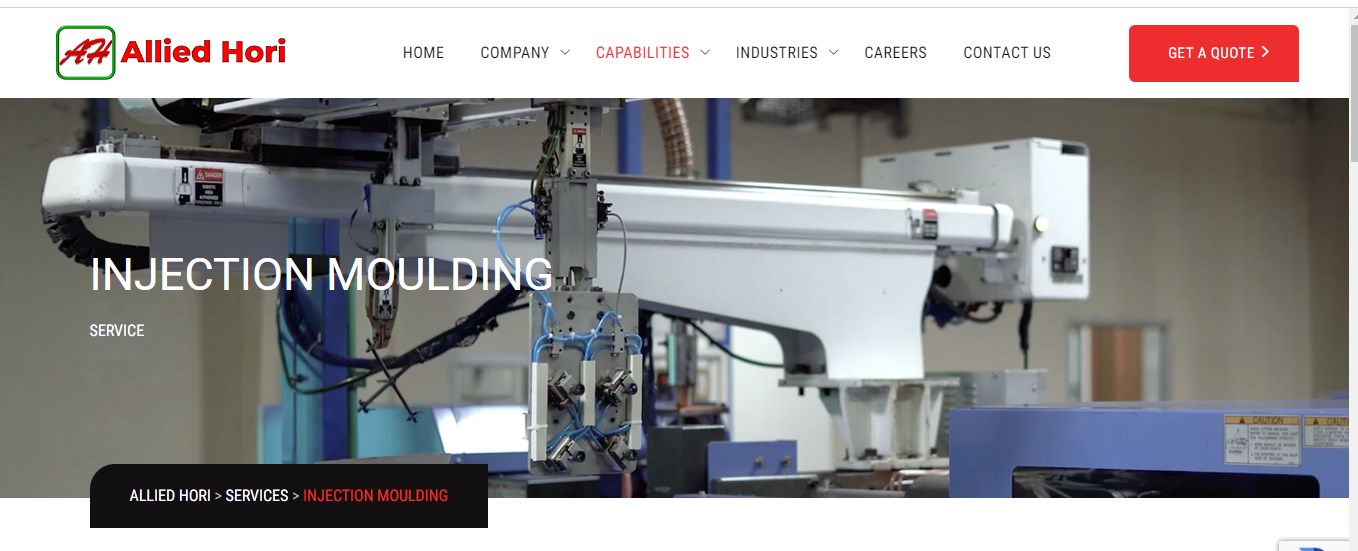Printed Circuit Board (PCB) assembly is a critical step in the electronics manufacturing process. Choosing the right PCB assembly manufacturer is essential for the success of your project. With numerous options available, it’s crucial to consider various factors to ensure you partner with a reliable and capable manufacturer. In this guide, we’ll discuss the key considerations when selecting a printed circuit board assembly manufacturer.
1. Introduction to Printed Circuit Board Assembly
What is PCB Assembly?
Printed Circuit Board Assembly is the process of mounting electronic components onto a PCB to create a functional electronic circuit. It involves soldering components onto the board according to the circuit design.
Importance of Choosing the Right Manufacturer
Selecting the right plastic injection moulding Malaysia assembly manufacturer is crucial for product quality, reliability, and overall project success. Here are the key considerations to keep in mind:
2. Quality and Reliability
1. Quality Standards
Ensure that the manufacturer follows industry-standard quality control processes. Look for certifications such as ISO 9001, which indicate adherence to quality management systems.
2. Component Sourcing
Verify that the manufacturer sources components from reputable suppliers. High-quality components are essential for the reliability and performance of the final product.
3. Capabilities and Expertise
1. Experience in Your Industry
Choose a manufacturer with experience in your industry or with similar types of projects. Industry-specific knowledge can ensure better understanding and tailored solutions.
2. Technical Expertise
Ensure that the manufacturer has the technical expertise to handle your project requirements. They should have skilled engineers and technicians capable of complex PCB assembly.
4. Technology and Equipment
1. Advanced Equipment
Look for a manufacturer that uses modern equipment and technology for PCB assembly. Advanced machinery can ensure higher precision, efficiency, and consistency.
2. Surface Mount Technology (SMT) Capability
Check if the manufacturer offers Surface Mount Technology (SMT) assembly, which is essential for assembling compact and high-density PCBs.
5. Prototype and Volume Production
1. Prototyping Services
If you require prototypes, ensure that the manufacturer offers prototyping services to test and validate your designs before full-scale production.
2. Scalability
Consider the manufacturer’s capacity for volume production. They should be able to scale production according to your requirements, whether for small batches or large volumes.
6. Lead Times and Turnaround
1. Production Lead Times
Inquire about the manufacturer’s production lead times. They should be able to provide realistic timelines and meet your project deadlines.
2. Quick Turnaround
Fast turnaround times are crucial, especially for time-sensitive projects. Choose a manufacturer that offers quick turnaround without compromising quality.
7. Cost and Pricing
1. Transparent Pricing
Ensure that the manufacturer provides transparent pricing with no hidden costs. Compare quotes from multiple manufacturers to ensure competitive pricing.
2. Value for Money
Consider the overall value offered by the manufacturer, including quality, reliability, and additional services, rather than solely focusing on the lowest price.
8. Location and Logistics
1. Proximity
Consider the manufacturer’s location in relation to yours. Proximity can simplify logistics, communication, and shipping, reducing lead times and costs.
2. International Reach
If you require global distribution, choose a manufacturer with experience in international logistics and shipping to reach your target markets.
9. Customer Support and Communication
1. Accessibility
Choose a manufacturer that is accessible and responsive to your inquiries and concerns. Clear communication channels are essential for a smooth collaboration.
2. Technical Support
Ensure that the manufacturer offers technical support throughout the project lifecycle, from design review to post-production assistance.
10. Environmental and Ethical Practices
1. Environmental Responsibility
Look for manufacturers that follow environmental best practices, such as waste reduction, recycling, and compliance with environmental regulations.
2. Ethical Standards
Consider the manufacturer’s ethical standards, including labor practices and supply chain transparency. Choose companies with ethical and socially responsible practices.
11. Conclusion
Selecting the right printed circuit board assembly manufacturer is crucial for the success of your electronic product. By considering factors such as quality, capabilities, technology, lead times, pricing, and environmental practices, you can make an informed decision and ensure a successful partnership.
Take the time to research and evaluate potential manufacturers to find the one that best fits your project requirements and business goals. A reliable PCB assembly manufacturer can be a valuable partner in bringing your electronic designs to life.

